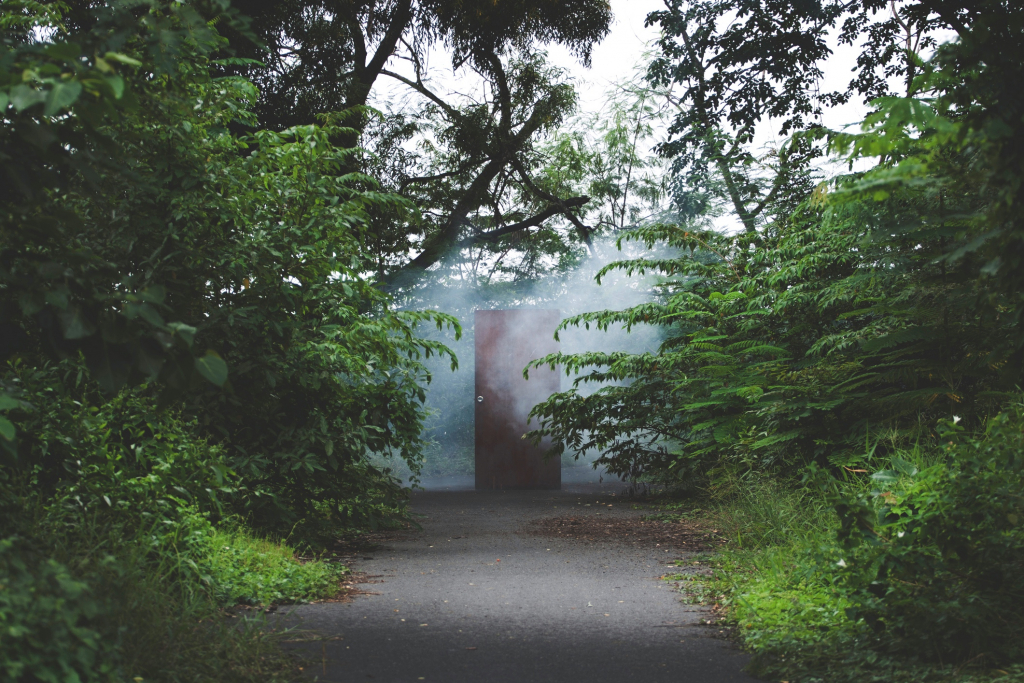“Why do you keep going back if it’s making you feel worse?” my boyfriend asked.
We were talking about one of the most unsettling experiences of my young adult life — don’t laugh — psychotherapy.
No snowflake, I was surprised that my hands were often trembling as I drove home after sessions. Sometimes my chest was pounding, or I found myself crying.
I didn’t have an answer for my boyfriend (other than yell, “I’m not a masochist!”). But it didn’t keep me from faithfully showing up for my appointment every other week.
Here’s what I know now:
1. It’s amazing how quickly our brain can change when it recognizes a bigger, better offer.

We’re wired for what feels good. Neuroscientists have located a specific area of the brain (nucleus accumbens) designed to constantly compare rewards and instantly recalibrate us toward the most rewarding option. That nimbleness is necessary to adapt to changing conditions so we can survive and thrive.
The therapy sessions were obviously shaking me up. So why was I so drawn to an experience that was often disorienting and uncomfortable?
Well, a part of me liked being shaken to the core — was irresistibly drawn to it, even. But not like some inner adrenaline junkie. I didn’t enjoy the disorienting sense of discomfort and uncertainty. But on some level, I could sense the shakeup was serving a purpose — a chance to reshuffle the cards and give myself a shot at a better hand.
I didn’t have to force myself or will myself with a “no pain, no gain” mentality to show up for my counseling sessions. And I wasn’t delaying gratification in the quest for some future reward. The present-moment rewards of therapy were the driving force: Every week, l was listened to by someone fully present, emotionally engaged, and non-judgmental. That need for authentic human connection is another survival-inspired part of our human programming. And it was hugely rewarding.
The emotional risk-taking we do in therapy sets us up to “do” our relationships with others better. It gets easier to break out of old, less-functional behavior patterns and replace them with better ones. Like breaking up with my narcissistic boyfriend and trading up a better type of guy.
But it did take me a while to dump the bad boyfriend. What I know now is that my brain was just doing what it’s supposed to do.
2. It’s amazing how much our brain doesn’t want us to change.

If humans are wired for what feels good, homeostasis might be at the top of the list. And what’s more stable than sameness or more comforting than the familiar? Like recognizing a friend in a crowd of strangers or spotting a KFC in a foreign country, the known is a comforting balm compared to the unknown, particularly when we’re feeling a bit vulnerable.
The familiar is most seductive when we’re stressed. Right when we most need to pay attention closely and critically, the comfort of the familiar fakes us out. It lulls us into an autopilot mode that keeps us stuck in a too-good-to-rock-the-boat but too-bad-to-keep-it afloat holding pattern.
No wonder change is usually forced upon us and catches us off guard.
So how do we deal with the brain’s need for certainty while making the changes we need and want to make? How do you engineer a breakthrough instead of a breakdown? How do you manage to a dump bad boyfriend when you’re afraid to be alone, along with all the other unknowns that go with it?
3. Let it RAIN.

RAIN is an acronym for a mindfulness practice developed to help us tread into unfamiliar territory and not get overwhelmed. Neuroscientists call this thinking skill “opening the window of tolerance,” which expands your field of awareness to hold conflicting aspects of complex situations.
I think of RAIN as a way of exploring our feelings without freaking out and making change feel safe and doable.
Here’s a brief description of RAIN:
RECOGNIZE that an uncomfortable feeling is coming on.
ACCEPT and ALLOW the feeling to be there. Don’t try to avoid it or make it go away. Instead, catch the wave of sensation and ride the experience all the way to shore.
INVESTIGATE the feelings and sensations happening moment-to-moment, studying them carefully with a friendly curiosity.
NOTE and NURTURE: 1) NOTE: Use short words and simple phrases to note the body sensations coming and going moment by moment. 2) NURTURE: Based on the information you gather, explore ways to help yourself feel better right now.
4. How to adapt RAIN to a counseling session:

I think of friendly curiosity, a primary component of RAIN, as an antidote to criticism and judgment. Curiosity can neutralize an Inner Critic attack and make room for the second component, compassion, to move in and jumpstart some productive problem-solving.
In the abbreviated example below, notice how the combination of curiosity and compassion in RAIN can help us get unstuck and move forward:
CLIENT: I overate last night and I’m so upset with myself. Just when I think I’m doing well and on my way to getting this Covid weight off, I do something like this. I hate it.
THERAPIST: What did it feel like in your body when you overate the last night?
CLIENT: I felt bloated and overfull. I was miserable.
THERAPIST: What’s it like for you, as you reflect on what happened?
CLIENT: I get really upset with myself. I beat myself up and say “you’ve got to do better!”
THERAPIST: How do you feel right now, as you reflect on what happened?
CLIENT: Appropriately sad.
THERAPIST: Appropriately sad. What’s it like to feel appropriately sad?
CLIENT: I noticed as I said that, there was a little bit of a softening around it.
THERAPIST: That’s interesting. You look a little more relaxed.
CLIENT: I don’t know that I want to soften up. I’m afraid if I give myself a pass, I’ll slack off and really get off track!
THERAPIST: Yeah. What do you get out of keeping the pressure on?
CLIENT: I feel on edge the rest of the day.
THERAPIST: That may be setting you up to overeat again. How do you feel about experimenting with something different?
CLIENT: Okay…
THERAPIST: Don’t worry. It’s a simple experiment. Pay attention to what you get when you criticize yourself and compare that to what you get when you comfort yourself. Just let the data speak for itself.
CLIENT: I have no idea how to comfort myself. It sounds so cheesy.
THERAPIST: Here’s an interesting idea, based on research about how our brain works. It’s a really simple shift from criticism to curiosity. Research shows that friendly curiosity is intrinsically rewarding. It’s a small, sneaky shift that can help you feel better, right in the moment. And it won’t feel too touchy-feely.
CLIENT: It’s worth a try.
THERAPIST: Especially if it helps you shift into comparing which feels and works better — criticism or curiosity and compassion.
What to remember about RAIN:

RAIN is not a technique to make yourself not do or not do something. It’s a tool to make you more aware.
Whether you get yourself to not do something (procrastinate, smoke, drink, yell, overeat, etc.) isn’t as important as gathering data about what does happen, particularly on a feeling level.
The awareness component of RAIN, coupled with the compassion component, makes it possible to freely choose better behaviors, without so much forcing and pushing. The effort of RAIN doesn’t exhaust us or wear us down.
RAIN is a deceptively powerful tool. I hope you look forward to hearing more about it from me and exploring it for yourself!

























